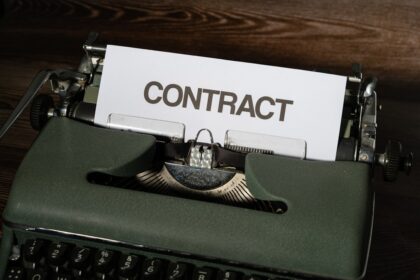At QuickAdvisr, we bring you expert insights. In today’s competitive business landscape, customer service is more than just a support function—it’s a cornerstone of success. Yet, many startups underestimate its importance, leading to costly consequences. In this article, we’ll explore the real cost of poor customer service through three case studies from failed startups. These examples highlight why prioritizing customer satisfaction is non-negotiable for sustainable growth.
- QuickAdvisr Guide: Why Customer Service Matters More Than Ever
- Case Study 1: Homejoy – The Cleaning Startup That Couldn’t Clean Up Its Act
- Case Study 2: Jawbone – A Tech Giant’s Untimely End
- Case Study 3: Beepi – The Car Marketplace That Ran Out of Gas
- Lessons Learned: How to Avoid the Same Mistakes
- Conclusion: Prioritize Customer Service for Long-Term Success
QuickAdvisr Guide: Why Customer Service Matters More Than Ever

Customer service isn’t just about resolving complaints; it’s about building trust, loyalty, and a positive brand reputation. Studies show that 89% of consumers are more likely to make repeat purchases after a positive customer service experience. Conversely, poor customer service can lead to:
- Loss of customers and revenue
- Negative reviews and damaged reputation
- Increased operational costs
- Missed opportunities for growth
Let’s dive into three real-world examples that illustrate the real cost of poor customer service.
Case Study 1: Homejoy – The Cleaning Startup That Couldn’t Clean Up Its Act

The Rise and Fall of Homejoy
Homejoy, a home cleaning service startup, raised $40 million in funding and expanded rapidly across the U.S. and Canada. However, despite its initial success, the company shut down in 2015. One of the primary reasons? Poor customer service.
What Went Wrong?
Homejoy’s customer service issues included:
- Inconsistent service quality due to underpaid contractors
- Slow response times to customer complaints
- Lack of accountability for subpar cleaning jobs
As negative reviews piled up, Homejoy struggled to retain customers. The company’s inability to address these issues ultimately led to its demise.
“Customer service is not a department; it’s the entire company. Every interaction matters.” – Tony Hsieh, Founder of Zappos
Case Study 2: Jawbone – A Tech Giant’s Untimely End
From Innovation to Insolvency
Jawbone, once a leader in wearable technology, filed for bankruptcy in 2017. Known for its fitness trackers and Bluetooth headsets, the company failed to adapt to market demands and neglected its customer base.
Key Customer Service Failures
Jawbone’s poor customer service included:
- Long wait times for product repairs
- Lack of transparency about product issues
- Failure to address customer feedback
These shortcomings eroded customer trust and contributed to Jawbone’s downfall.
Case Study 3: Beepi – The Car Marketplace That Ran Out of Gas
The Promise and Pitfalls of Beepi
Beepi, an online marketplace for used cars, raised $150 million but shut down in 2017. While the startup offered a unique value proposition, its customer service issues proved fatal.
Customer Service Breakdown
Beepi’s problems included:
- Delayed delivery of purchased vehicles
- Poor communication with customers
- Inadequate resolution of disputes
These issues led to a loss of customer confidence and ultimately, the company’s collapse.
Lessons Learned: How to Avoid the Same Mistakes
These case studies demonstrate the real cost of poor customer service. Here’s what startups can do to avoid similar pitfalls:
| Problem | Solution |
|---|---|
| Slow response times | Invest in efficient customer support systems |
| Inconsistent service quality | Train and empower employees to deliver excellence |
| Lack of transparency | Communicate openly with customers |
| Ignoring feedback | Actively seek and implement customer suggestions |
Conclusion: Prioritize Customer Service for Long-Term Success
The real cost of poor customer service goes beyond lost revenue—it can lead to the failure of even the most promising startups. By learning from these case studies, businesses can prioritize customer satisfaction and build a foundation for sustainable growth. Remember, happy customers are your best advocates and the key to long-term success.
Take action today to evaluate and improve your customer service strategy. Your business—and your customers—will thank you.
📌 Related reading: 10 Essential Travel Gadgets That Save Space and Money
✨ Stay updated with QuickAdvisr.













